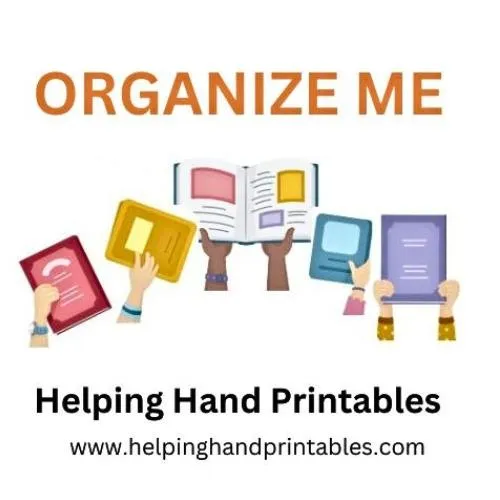This article will be attached to your Credit Claimer printables purchase
Understanding the Credit Claimer
A "credit claimer", "credit taker", or "credit thief" or someone who claims undeserved credit is a person who takes recognition or praise for work they did not do or for contributions they did not make. This behavior involves falsely presenting oneself as responsible for an accomplishment, often at the expense of those who genuinely deserve the recognition. Such actions undermine the principles of fairness and honesty, creating resentment and mistrust among peers and colleagues. This behavior can damage relationships and diminish the integrity of both the individual and the organization or group involved.
Here are some ways a person might practice "claiming credit:
Taking sole credit for a group project: Presenting a project as their own work without acknowledging the contributions of team members.
Exaggerating their role in a task: Inflating their involvement or importance in the completion of a project or task to receive more recognition.
Using others' ideas without attribution: Presenting someone else’s ideas, suggestions, or work as their own in meetings or presentations.
Interjecting during presentations: Interrupting others to insert their own name or role into the narrative, implying they played a more significant part than they did.
Editing documents: Adding their name to reports, papers, or documents they did not substantially contribute to.
Publicly acknowledging minor contributions as major: Highlighting their small or minimal contributions as being crucial to the project's success.
Leveraging their position: Using their authority or higher status in a company to overshadow the contributions of subordinates.
Manipulating feedback: Steering positive feedback towards themselves, even when it was meant for someone else.
Rebranding others' work: Slightly altering someone else’s work and then presenting it as their original creation.
Misrepresenting collaborative efforts: Describing joint efforts in a way that emphasizes their involvement while minimizing others' roles.
Why Does Someone Claim Undeserved Credit?
Seeking Validation: They crave recognition and approval from others to boost their self-esteem.
Insecurity: They feel insecure about their own abilities and achievements and use false claims to appear more capable.
Competition: They want to outshine others and be seen as the best, even if it means taking credit for someone else's work.
Ambition: They have high aspirations and see claiming credit as a shortcut to achieving their goals.
Fear of Failure: They are afraid of being perceived as unsuccessful and believe that claiming credit will mask their shortcomings.
Lack of Integrity: They may lack ethical principles and see nothing wrong with taking undue credit.
Pressure to Succeed: They might feel immense pressure from family, friends, or colleagues to succeed and resort to dishonest tactics.
Attention-Seeking: They enjoy being in the spotlight and use false claims to keep the attention focused on them.
Past Reinforcement: They may have previously gotten away with it and received praise, reinforcing the behavior.
Jealousy: They are envious of others' achievements and take credit to diminish the success of those they envy.
How Do You Deal With a “Credit Claimer”?
Address the Issue Privately: Have a calm and private conversation with the person, whether in a work team or personal setting, to discuss the behavior and its impact on others.
Document Contributions: Keep a record of each team member’s or individual's contributions to ensure that everyone’s work and efforts are recognized fairly.
Encourage Group Acknowledgment: Foster a culture, both in teams and among friends or family, where members regularly acknowledge each other's efforts and contributions publicly.
Set Clear Expectations: Establish clear guidelines about giving and taking credit within the team, organization, or any group activity.
Provide Constructive Feedback: Offer feedback that helps the credit claimer understand the importance of honesty and integrity in both professional and personal interactions.
Involve a Mediator: If the issue persists, involve a neutral third party to mediate the discussion and find a resolution, whether it's at work or among friends.
Model Good Behavior: Lead by example and consistently give credit where it’s due, showing the importance of integrity in all contexts.
Promote Transparency: Ensure that the process of recognizing achievements is transparent and based on documented contributions, applicable both in work and social settings.
Highlight Group Efforts: Emphasize the importance of teamwork and collective success rather than individual accolades, whether in a work project or a group activity.
Reinforce Positive Behavior: Acknowledge and reward honest behavior and the fair distribution of credit within the team and among friends or family members.
By appropriating others' accomplishments, credit claimers can cause significant resentment and discourage collaboration. Addressing this behavior involves promoting transparency, recognizing everyone's contributions, and fostering an environment where integrity and mutual respect are prioritized.
Disclaimer: The results achieved through the use of our printable guides are solely dependent on the individual's efforts and commitment. While our resources are carefully designed to support personal growth and development, we cannot guarantee specific outcomes or success. It is important to understand that the effectiveness of our guides is contingent upon the dedication, persistence, and active participation of the user. Success is not guaranteed unless the individual consistently applies the strategies and techniques outlined in the guides. We encourage users to approach their journey of self-improvement with realistic expectations and a willingness to invest time and effort in their personal growth.
